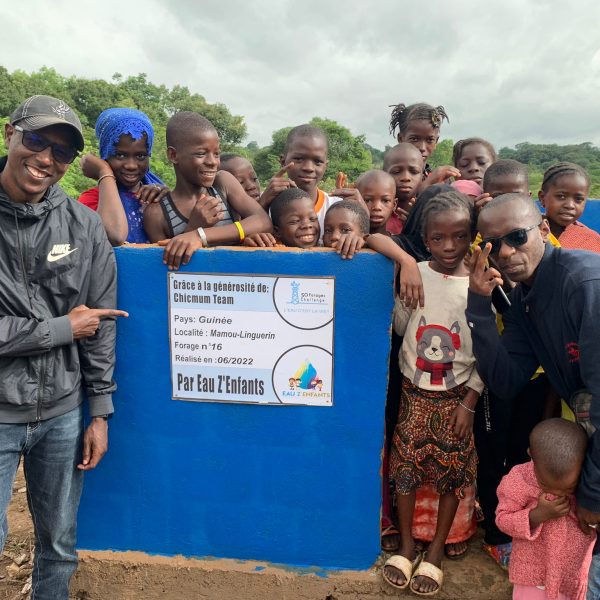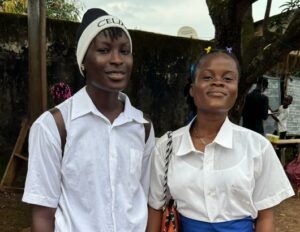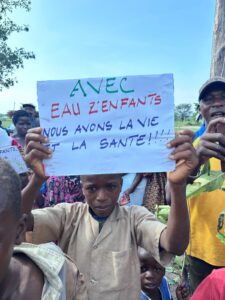Ramadan, the ninth month of the Islamic calendar, is a sacred time for Muslims around the world, including in Guinea-Conakry. This West African country, predominantly Muslim, observes this month of fasting with particular fervor. This period of fasting and prayer is marked by rich and diverse traditions, where children play a central role. In Guinea, Ramadan is much more than a simple religious observance; it is a time of solidarity, sharing, and learning for younger generations.
The Importance of Ramadan for Children
For Guinean children, Ramadan is a time of learning and discovering Islamic values. From a young age, they are introduced to the practices of fasting, prayer, and charity. Although fasting is not required for prepubescent children, many choose to participate partially often by fasting for a few hours or a few days,depending on their physical ability. This gradual introduction helps them understand the significance of Ramadan and develop a sense of discipline and responsibility.
Children also learn the importance of charity, or zakat, one of the five pillars of Islam. During Ramadan, families are encouraged to give to those in need, and children often take part in these generous acts. They help prepare meals for less fortunate neighbors or distribute clothing and toys. These gestures instill in them the values of sharing and solidarity, values that are essential in a society where poverty remains a major challenge.
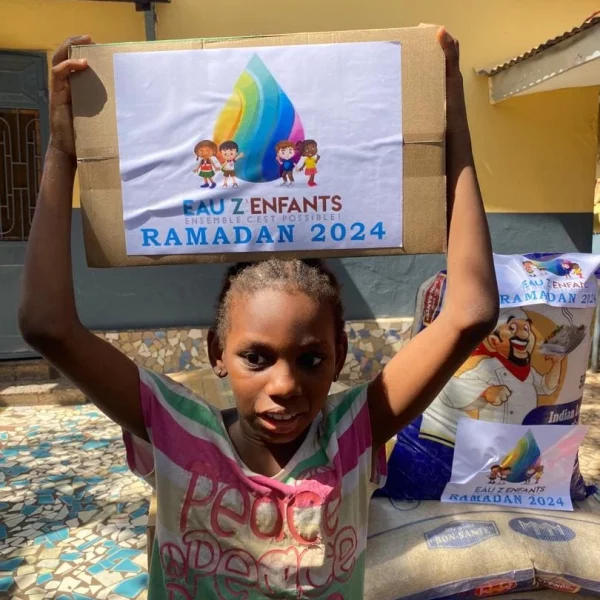
Ramadan Traditions in Guinea
In Guinea Conakry, Ramadan is celebrated with particular fervor. Families gather each evening to break the fast together, a moment known as iftar. Traditional dishes such as thieboudienne (rice with fish), mafé (meat stew with peanut sauce), and fritters are carefully prepared. Dates, a symbol of breaking the fast, are also very popular.
Les enfants participent activement à la préparation de ces repas, apprenant ainsi les recettes familiales et l’importance de la cuisine dans la culture guinéenne.
Les prières nocturnes, ou tarawih, are another important aspect of Ramadan. Mosques are filled with worshippers, including many children, who pray together late into the night. These collective prayers strengthen the sense of community and belonging. Children learn surahs from the Qur'an and hadiths, thus deepening their religious knowledge and faith.
The Challenges Faced by Children During Ramadan
Ramadan has a significant impact on social life in Guinea-Conakry. Work schedules are often adjusted to allow employees to observe fasting hours. Schools and public institutions may also adapt their timetables to facilitate Ramadan observance.
Despite the joy and spirituality of Ramadan, children in Guinea-Conakry face several challenges. Poverty is a major issue in the country, and many families struggle to meet their daily needs. During Ramadan, these difficulties are heightened, as families need to prepare more plentiful and frequent meals. Children, often the most vulnerable, may suffer from malnutrition and fatigue..
Access to education is another challenge. Although Ramadan is a time of spiritual learning, children must also continue their formal education. Fasting can affect their concentration and school performance. Educational authorities and parents must find a balance between religious observance and the educational needs of children..
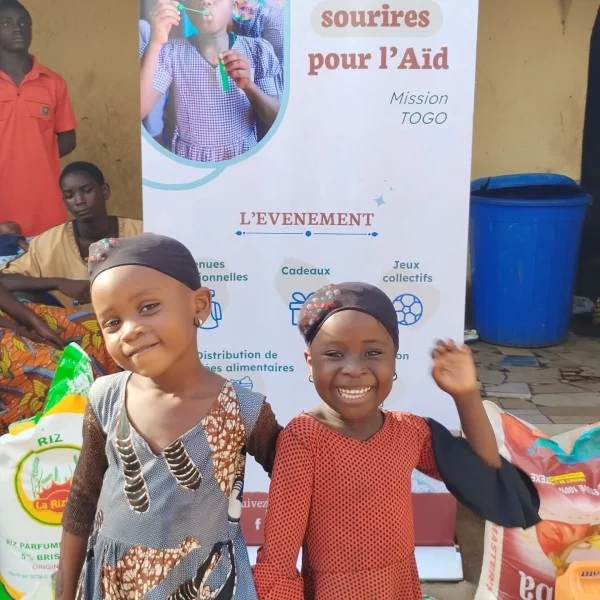
Support Initiatives for Children
Several initiatives are in place to support children during Ramadan. Non-governmental organizations (NGOs) and local associations distribute meals and food kits to families in need. These efforts aim to ensure that all children, regardless of their economic situation, can fully participate in Ramadan without suffering from hunger.
Schools and community centers also organize educational and recreational activities for children. These include workshops on Islamic values, Qur'an recitation contests, and traditional games. Such programs provide children with a safe and stimulating environment to learn and have fun during the holy month.
The end of Ramadan is marked by Eid al-Fitr, a joyful celebration of the conclusion of the fasting month. In Guinea-Conakry, Eid al-Fitr is a time of festivity and sharing. Families gather for prayers, exchange gifts, and enjoy festive meals. Children often receive new clothes and toys on this special occasion.
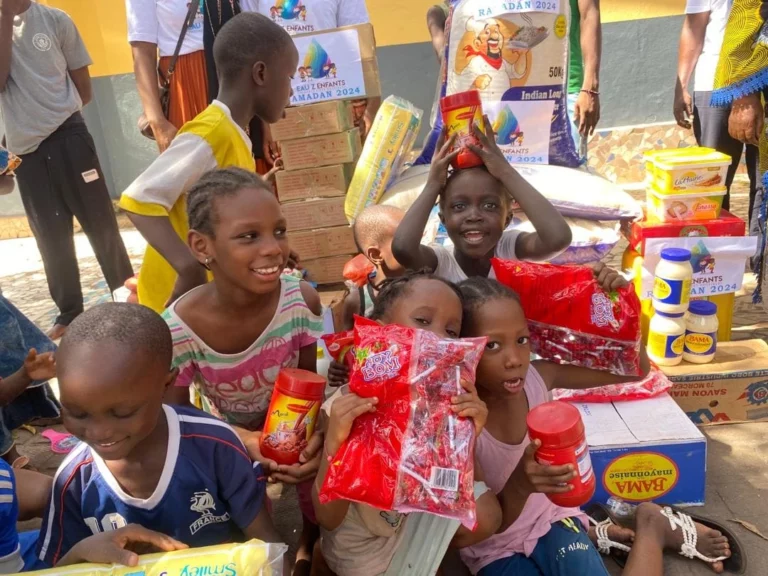
The Impact of Ramadan on the Community
Ramadan has a profound impact on the Guinean community. It strengthens family and social bonds, promotes solidarity, and encourages generosity. By actively participating in Ramadan traditions, children develop a strong sense of belonging and responsibility toward their community.
Ramadan is also a time for reflection and repentance. Children learn to forgive, to be patient, and to respect others. These values are essential for building a harmonious and peaceful society.
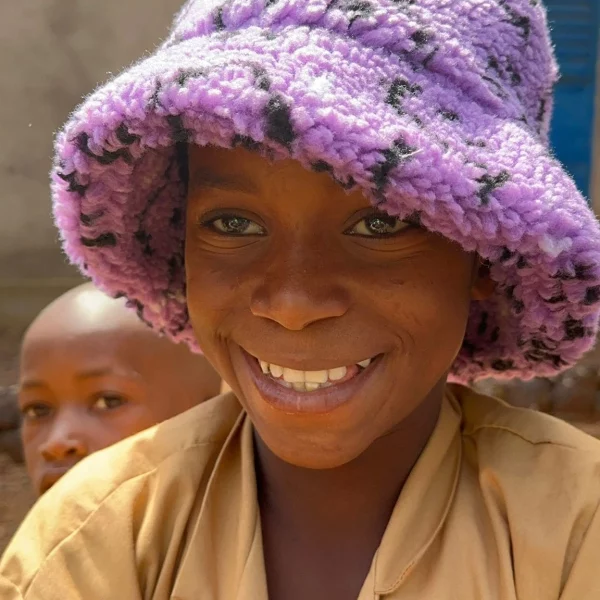
Conclusion
In Guinea Conakry, just like in Togo, where we are also active, Ramadan is a period rich in traditions and teachings for children. Despite economic and educational challenges, the support initiatives and values instilled during this holy month contribute to their personal and spiritual development. Ramadan is far more than a month of fasting; it is a time of solidarity, sharing, and learning that shapes young generations and strengthens the community.
By supporting Guinean children during Ramadan through our organization Eau Z’Enfants, you are investing in the future of this small nation. We are guided by the values of generosity, discipline, and respect lessons learned during this sacred month which are essential foundations for building a prosperous and harmonious society.
Once again, a big thank you to all our donors, collaborators, and partners!


